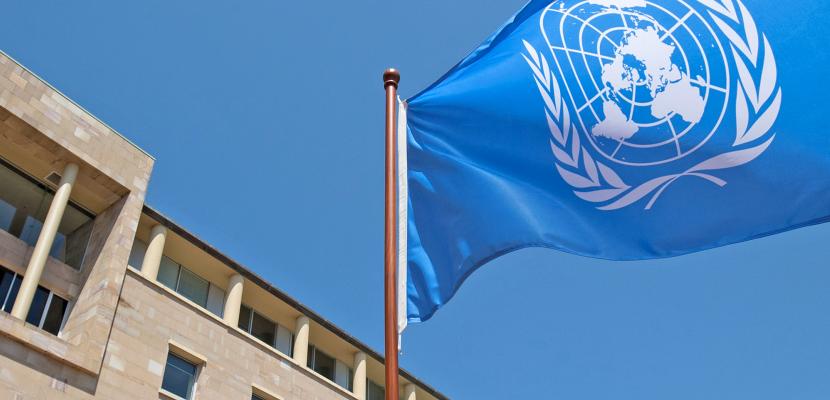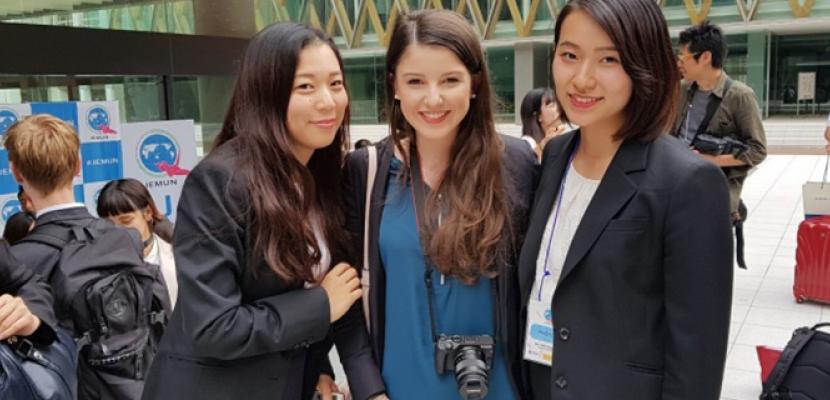
Written by Bachelor of Journalism student Cloe Read.
As a journalist, our careers are comprised of curating and telling stories. We must be able to differentiate between a great story, a mediocre story, and one that is completely irrelevant. My experience at the Japanese English Model United Nations (JEMUN) will continue to be one of my greatest stories I will ever tell.
JEMUN was my first ever MUN and I knew it was going to be fast-paced and hard work, especially as a video journalist. The experience however, was unlike anything I have done – one minute I was reporting on a blind, disabled Japanese musician who performed at the JEMUN opening ceremony and the next I was being dared by my Japanese partner Shota to eat the octopus out of our daily bento boxes (I did not). As a journalism student majoring in International Relations, JEMUN gave me the opportunity to utilise the skills I had learnt from both disciplines.
Each day we had to report on our assigned topic of the day, film and then edit it, and upload it to JEMUN’s social media platforms, all while ensuring we were up-to-date on the issues unfolding between the nations. Shota and I were assigned to the Crisis Simulation room, which meant we had the more difficult job of reporting on the crises that suddenly unfolded and had to quickly interview the delegates to find out how their nation was planning to deal with the crisis. Although most of the crises were things such as tsunamis and earthquakes, on the last day the delegates encountered “Godzilla”, which shocked everyone. As we watched the delegates scramble to figure out how Godzilla had affected Japan and what measures could be taken to neutralise such a threat and protect citizens of Japan and neighbouring nations, we had to race to interview the delegates on their position on Godzilla. Even though the idea of Godzilla is highly improbable (hopefully) in real life, JEMUN succeeded in preparing both the delegates and journalists for the unexpected.
More often than not, people working in both industries are exposed to unexpected events and because of this I believe it’s extremely important that students are taught this before they graduate and enter the workforce. As journalism is now progressively tailored towards technological advancements and people’s reliance upon phones and their access to various forms of social media reporting, this was one of the best preparations I could have received before leaving university and entering the industry.

As a journalist, we make connections with everyone we talk to. Japan provided me with an endless amount of connections – everyone was willing to add me on social media and promises were made to visit if we travelled to each other’s countries again. Having this experience behind me, I have become a far better journalist and have broadened my knowledge on the United Nations and subsequently international relations in general.
Even though JEMUN only ran for three days, I made friends I will never forget and will forever be grateful for the better journalist I became because of JEMUN. I was exposed to both areas of my study in the most productive and effective way possible and I will always appreciate my time in Japan and what their culture and people taught me. I would highly recommend Model United Nations to anyone who is interested in or studying international relations as it not only truly opens your world up to many possibilities but enables you to learn so much more than what you can in a classroom and allows you to make unforgettable connections that will undoubtedly help you in the future. JEMUN was one of the most exciting and educational things I have ever done and I hope more journalism students follow in my footsteps to experience this amazing opportunity.